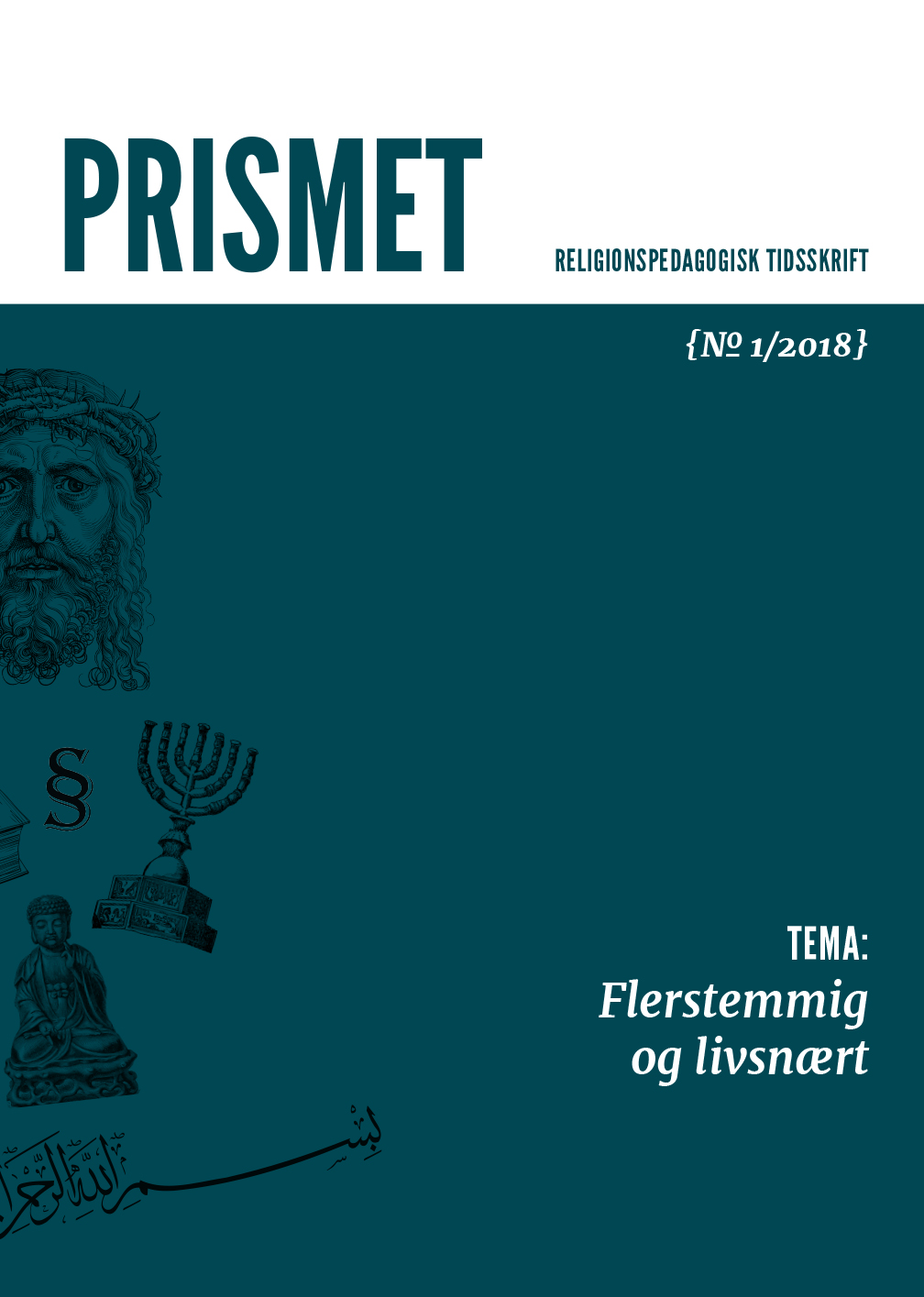Ungdomars erfarenheter som resurs för hållbar utveckling. Om utbildning för hållbar utveckling och religionskunskapsämnet i gymnasieskolan
DOI:
https://doi.org/10.5617/pri.6153Sammendrag
Denna artikel diskuterar hur ungdomars egna erfarenheter kan användas som en resurs i undervisning för hållbar utveckling inom religionskunskapen. Diskussionen sker mot bakgrund av en intervjustudie bland sistaårselever på fyra gymnasieskolor i Sverige. I dessa intervjuer framkommer det att ungdomar har gedigna erfarenheter av såväl engagemang som makt och uthållighet som är så pass integrerade med ungdomars uppfattningar om sig själva att de kan betraktas som delar av deras livsåskådning. Dessa erfarenheter kan därmed utgöra en resurs i undervisning om hållbar utveckling, vilket blir tydligt i religionskunskapen. Hållbar utveckling är ett tema som kan bidra till att stärka elevernas hermeneutiska förmåga och till mångfald – centralt för religionskunskapen och nödvändigt för en hållbar utveckling.
Nyckelord: ungdomar, livsåskådning, religionskunskap, hermeneutisk förmåga, engagemang, makt, uthållighet, utbildning för hållbar utveckling, gymnasieskolan, Sverige
This article discusses how young people's own experiences can be used as a resource for sustainable development education within religious education. The discussion takes place in the light of an interview study among last year's students at four upper secondary schools in Sweden. In these interviews, it appears that young people have a solid experience of commitment as well as power and stamina that are so integrated with their perceptions of themselves that they can be regarded as part of their world view. Hence, these experiences become a resource for education for sustainable development, which become clear in religious education. Sustainable development is a theme that reinforces the students’ hermeneutical competence and contributes to diversity – central for religious education and necessary for sustainable development.
Keywords: youth, world view, religious education, hermeneutical competence, commitment, power, stamina, education for sustainable development, upper secondary school, Sweden
Nedlastinger
Utgave
Seksjon
Lisens
Innhold publisert i utgaver av tidsskriftet Prismet utgitt før 2017 er beskyttet av Lov om opphavsrett til åndsverk (https://lovdata.no/dokument/NL/lov/1961-05-12-2). Dette betyr at tekst og bilder publisert i disse årgangene av tidsskriftet kun kan deles og re publiseres med skriftlig tillatelse fra forfatter og/eller fotograf.
Fra og med årgang 2017 er innhold i tidsskriftet Prismet - dersom ikke annet er uttrykt - lisensiert gjennom Creative Commons Lisens BY-NC-4.0 (https://creativecommons.org/licenses/by-nc/4.0/). Dette betyr at innhold kan kopieres, distribueres og spres i hvilket som helst medium eller format, så lenge disse vilkårene er fulgt:
Kreditering: Du må oppgi korrekt kreditering, oppgi en lenke til lisensen, og indikere om endringer er blitt gjort. Du kan gjøre dette på enhver rimelig måte, men uten at det kan forstås slik at lisensgiver bifaller deg eller din bruk av verket.
Ikke-kommersiell bruk: Du kan ikke benytte materialet til kommersielle formål.
NB: Creative Commons-lisensen gir deg ikke nødvendigvis alle de tillatelser som er nødvendig for din tiltenkte bruk. For eksempel kan andre rettigheter, som reklame-, personvern-, eller ideelle rettigheter, sette begrensninger på hvordan du kan bruke materialet.
Forfattere som publiserer i Prismet aksepterer følgende vilkår:
Forfatter(ne) beholder opphavsretten til artikkelen og gir Prismet rett til første publisering, samtidig som artikkelen blir lisensiert under Creative Commons Lisens BY-NC-4.0. Denne lisensen tillater deling av artikkelen for ikke-kommersielle formål, så lenge forfatteren og første publiseringssted Prismet krediteres.
Forfatteren står fritt til å publisere og distribuere arbeidet/artikkelen etter publikasjon i Prismet, så lenge det henvises til tidsskriftet som første publiseringssted. Innsendte bidrag som er antatt for publikasjon eller som er til vurdering i Prismet kan ikke samtidig være under vurdering for publikasjon i andre tidsskrifter, antologier, monografier eller lignende. Ved å sende inn bidrag aksepterer forfatteren at bidraget publiseres både digitalt og i trykt utgave av Prismet.



